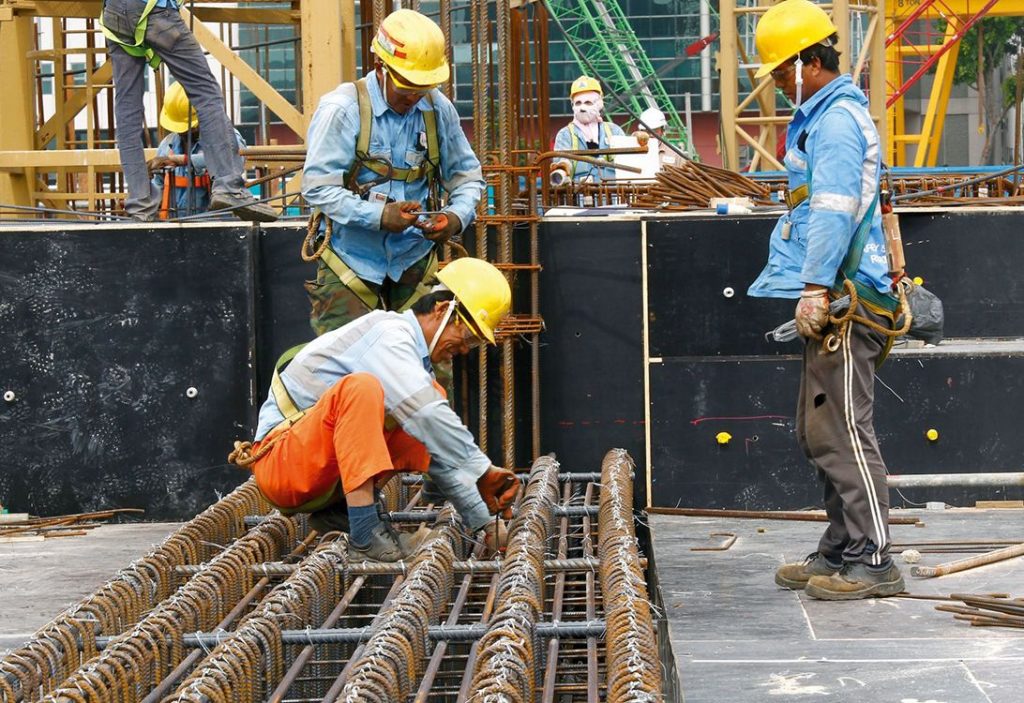The robust development of Canada provides prevalent development specialists with a plethora of options. It is a potential objective for individuals who are interested in pursuing a business in this sector, as the demand for qualified laborers is anticipated to rise.
The procedure of obtaining the requisite licenses for foreign personnel to engage in painting in Canada is exacerbated by sponsorship visa applications. The preparation requirements, benefits, duties, benefits, work methods, and computer program strategies for the creation of large-scale labor employment in Canada will be the focus of this online journal.
A development laborer or development laborer is responsible for performing physical labor on development sites. They may organize locations by removing hazards, stacking or unloading materials, and tidying. A common laborer may operate a variety of hardware or assemble and disassemble individual frameworks and other brief structures. They are essential for the development of thruways, buildings, and natural remediation.
Key Points:
- Country: Canada
- Job: Construction Worker
- Education: High School Diploma
- Experience: 2-3 Years
- Who can Apply? All Nationalities
- Age: 20-48
- Salary: CAD 35,000 to CAD 55,000 Annually
- Visa Sponsorship: Yes
What are Construction Labor Jobs in Canada?
The construction industry in Canada is a diverse sector, with construction laborers employed in residential, commercial, and industrial endeavors. Their obligations encompass:
- Site Preparation: The process of preparing and clearing construction sites, erecting scaffolding, and excavating trenches.
- Material Handling: The act of transporting materials and equipment to and from work areas.
- Equipment Operation: The operation of machinery, including cranes, bulldozers, and forklifts.
- Concrete Work: The process of pouring, leveling, and completing concrete.
- General Construction Tasks: Assisting in the installation of plumbing, electrical, drywall, and roofing systems.
Entry-level positions for general laborers and expert labor roles, such as masons, carpenters, and electricians, are all possible in the construction industry. Numerous of these positions provide opportunities for advancement and on-the-job training.
Requirements:
- A driver’s license that is substantial is required.
- Be at least 18 years of age.
- Diploma from a high school.
- Capacity to perform physical labor and other physically demanding duties.
- Capacity to operate in any climatic condition.
- It is imperative that employees are punctual and dependable.
- It is necessary to participate as a common laborer in the development industry.
- High school confirmation or an equivalent.
- Prior experience in development or a related discipline is advantageous; however, it is not mandatory.
- Capacity to perform physically demanding duties and lift objects that are too heavy.
- A valid driver’s license and reliable conveyance to and from work sites are required.
- Fundamental information regarding development apparatuses and equipment.
- A willingness to work flexible hours, including night times, weekends, and any additional time that may be necessary.
- Comprehending and adhering to security protocols and regulations in the development sector.
- Capacity to operate within restricted areas and statutes (where applicable).
- Proven dedication to dependability and dependability.
- Capacity to operate efficiently in challenging conditions and adhere to project constraints.
Responsibilities of Construction Labor Jobs:
- Maintain and operate development equipment and machinery.
- Assist administrators, architects, and other skilled laborers as required.
- Prepare development destinations by eliminating hazards and deterrents.
- Empty or load development materials.
- Assemble and remove transient structures, such as scaffolding.
- Compact, fill, or remove earth.
- Obey the guidance of your supervisors.
- Assist in the recruitment of employees.
- Prepared to memorize from on-the-job preparation as needed.
- Clean up the location.
- Carries out various physical responsibilities as directed.
- Uphold all security protocols.
- Moves, secures, introduces, builds, fills, or empties materials.
- Executes a limited number of specialized tasks that may necessitate on-the-job training.
- Depending on the task site/assignment, effectively utilizing both heavy and light equipment.
- Transfers items from one location to another, adhering to the location supervisor’s directives.
- As directed by the supervisor or in the plans, relocate instruments, hardware, or other fabric.
Benefits of Construction Labor Jobs in Canada:
- Stable Employment Opportunities
- Competitive Wages
- Legal Authorization and Work Visa
- Health Coverage and Benefits
- Social Security and Pension
- Access to High-Quality Healthcare
- Skilled Worker Recognition
- Work-Life harmony
- Diverse and Inclusive Workplace
- Permanent Residency Opportunities
- Access to Professional Networks
- High Quality of Life
- Workplace Safety
- Relocation Assistance and Family Support
Types of Construction Labor Jobs in Canada:
- General Laborer As a general laborer, you may be responsible for a variety of responsibilities, including the movement of materials, the cleaning of work sites, and the assistance of professional tradespeople. Physical stamina and a strong work ethic are crucial for this position, although formal education is not always necessary.
- Carpenter Carpenters are accountable for the construction, installation, and maintenance of building frameworks, including walls, floors, and rooftops. You will require certifications, relevant skills, and occasionally, experience in specialized woodworking.
- Mason Masons are responsible for the construction of walls, foundations, and other structures using bricks, stones, and concrete. Precision measurements and experience with weighty materials are prerequisites.
- Painters apply coatings to walls, ceilings, and other surfaces to enhance the appearance and durability of buildings. Specific training may be necessary for commercial or industrial endeavors, despite the fact that painting experience is essential.
- Plumbers are responsible for the installation and maintenance of piping systems in both residential and commercial settings. To be eligible for this position, you must possess apprenticeship experience and relevant certifications.
- Electrician Electrical systems are installed and repaired by electricians. Electricians are in high demand and necessitate formal education and certification, as they are one of the more advanced positions in the construction industry.
- Operator of Heavy Equipment In the construction industry, the operators of bulldozers, cranes, and excavators are crucial. It is essential to have experience operating large apparatus and adhering to safety regulations.
Salary:
The salary of common creation representatives in Canada is contingent upon the environment, satisfaction, and specific work. CAD 35,000 to CAD 55,000 or more annually.
How do you Apply for Construction Labor Jobs in Canada?
Search for job opportunities on online movement groups, project websites, and recruitment companies that specialize in job placement.
- Preparing Your Resume: Emphasize relevant qualifications, capabilities, and experiences. Incorporate any creation-related instruction or guides that you have completed.
- Submit Applications: Submit an application for employment that provides visa sponsorship. Confirm that your utility satisfy the organization’s requirements.
- Interview: Should you be selected for the shortlist, you will be invited to participate in a personal meeting, video conference, or mobile conversation. Prepare to discuss your involvement, capabilities, and the reasons for your interest in running in Canada.
- Job Offer: Upon achieving success, you will be assigned to a movement company, typically contingent upon obtaining a peace visa.
- Work Visa Application: Your trade organization will furnish you with a pre-prepared offer letter and other necessary documentation. Subsequently, you will refine your application for a peace visa through Migration, Outcasts, and Citizenship Canada (IRCC).
- Medical Examination: It is recommended that you undergo a medical examination to verify that you are physically and mentally capable of performing the duties of your job.
- Background Check: As part of the visa application process, an authentic past examination may be administered.
- Work Permit: Upon approval, you will be able to acquire your artwork, which will allow you to legally work in Canada.
- Travel to Canada: Arrange your travel to Canada and establish your modern lifestyle and handle.
Conclusion:
Construction Labor Jobs in Canada with Visa Sponsorship are an excellent opportunity for foreign workers looking to build a career in one of the most vibrant industries in the country. With various visa pathways available, including the Temporary Foreign Worker Program, Provincial Nominee Program, and Express Entry, you can find a suitable job and apply for a work permit to live and work in Canada. By meeting the eligibility requirements, securing a job offer, and preparing the necessary documentation, you can take advantage of the many benefits that working in Canada’s construction sector offers.
Frequently Asked Questions:
-
Can I get a visa for construction labor jobs in Canada?
Yes, foreign workers can obtain a work visa for construction labor jobs in Canada. You need a job offer from a Canadian employer with a valid Labor Market Impact Assessment (LMIA) to apply for a work permit.
-
What are the requirements for a construction labor visa?
To apply, you need a job offer from an employer in the construction industry, proof of relevant experience, and the employer’s LMIA approval. Additionally, you must meet health and safety standards and show proof of financial stability.
-
How long does the visa process take for construction jobs?
The processing time for a construction labor visa in Canada can vary, typically taking a few months. Factors like application completeness, the type of job, and LMIA approval impact the processing speed.





